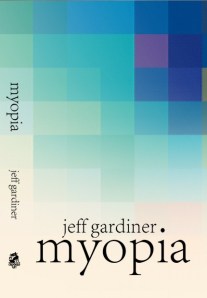Jerry is bullied for wearing glasses. When he realises his short-sightedness is not a disability, but a different way of perceiving and understanding the world around him, he begins to see things from a new, unique perspective.
He even starts to believe he might have super-powers, but soon learns a great deal about himself and about the boy who is making his life such a misery.
As he becomes alienated from his girlfriend and best mate, both victims of racism, Jerry realises he needs to think hard and put his plan into action.
Has Jerry discovered a new way of dealing with prejudice?
Myopia is a novel about bullying, friendship and learning the hard way.
“An intelligent, skillful and well-written treatment of a serious subject”
(L.H. Healy of The Little Reader Libarary – Amazon top 500 reviewer and Vine Voice.)
“Myopia is a poignant, beautiful and heart-wrenching story that resonates with truth, hope and above all, the immeasurable power of human compassion. Thoroughly recommended.” (T. J. Reids)
———————————————-
MYOPIA by Jeff Gardiner is available from
Or http://www.smashwords.com as a paperback and e-book
ISBN – 978-1-908910-53-0
Jeff Gardiner’s Blog: https://jeffgardiner.wordpress.com/











You must be logged in to post a comment.